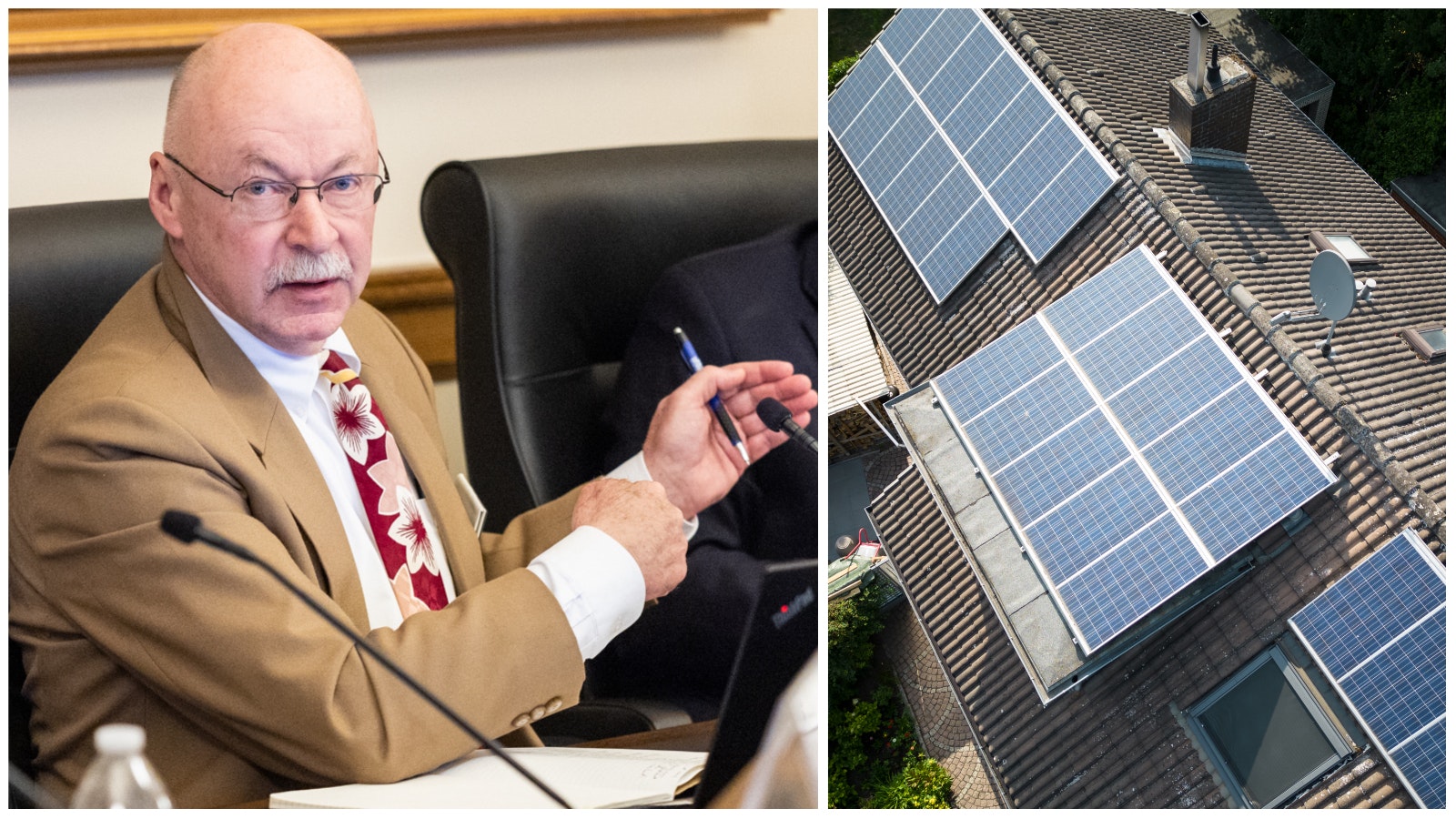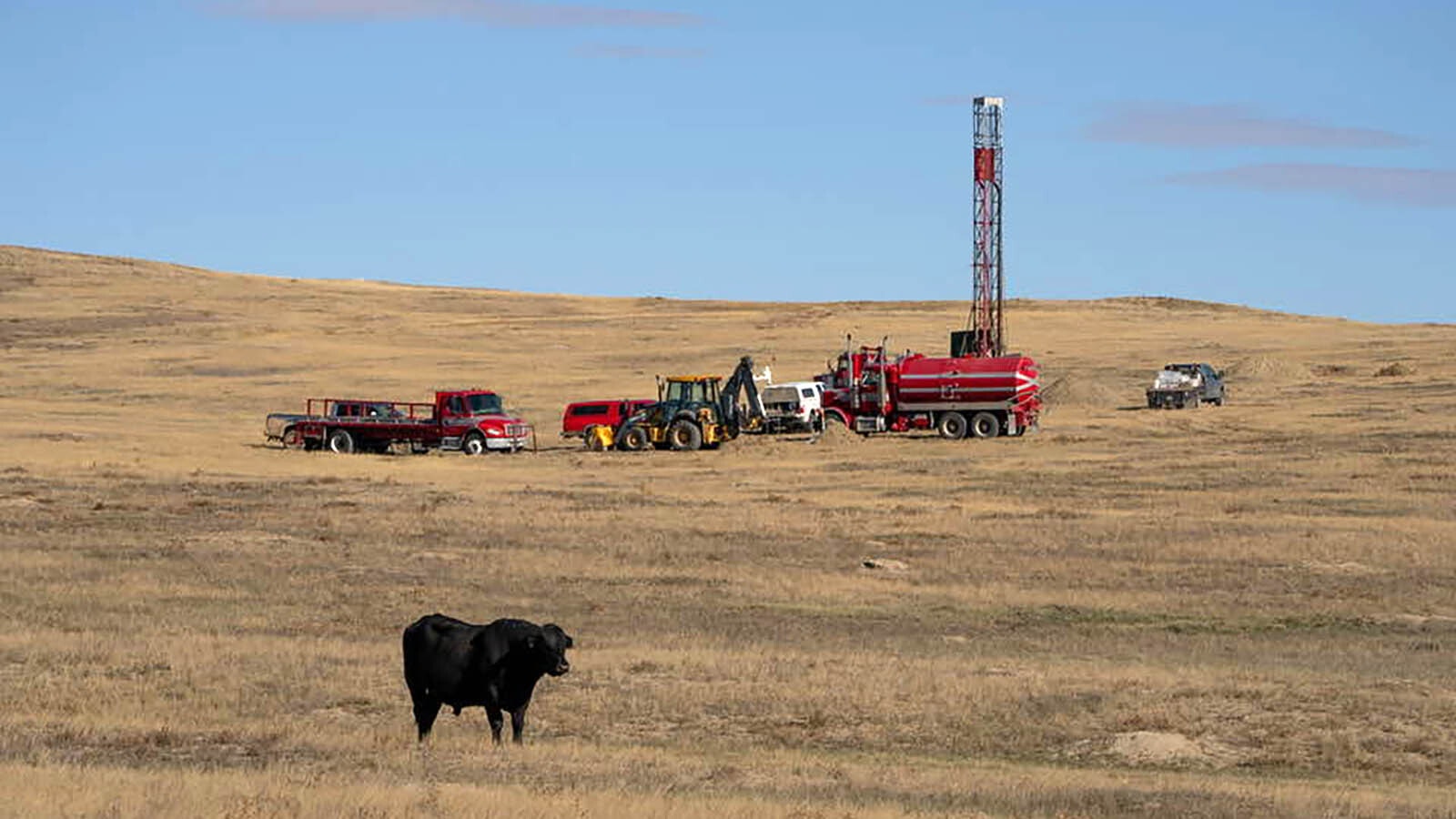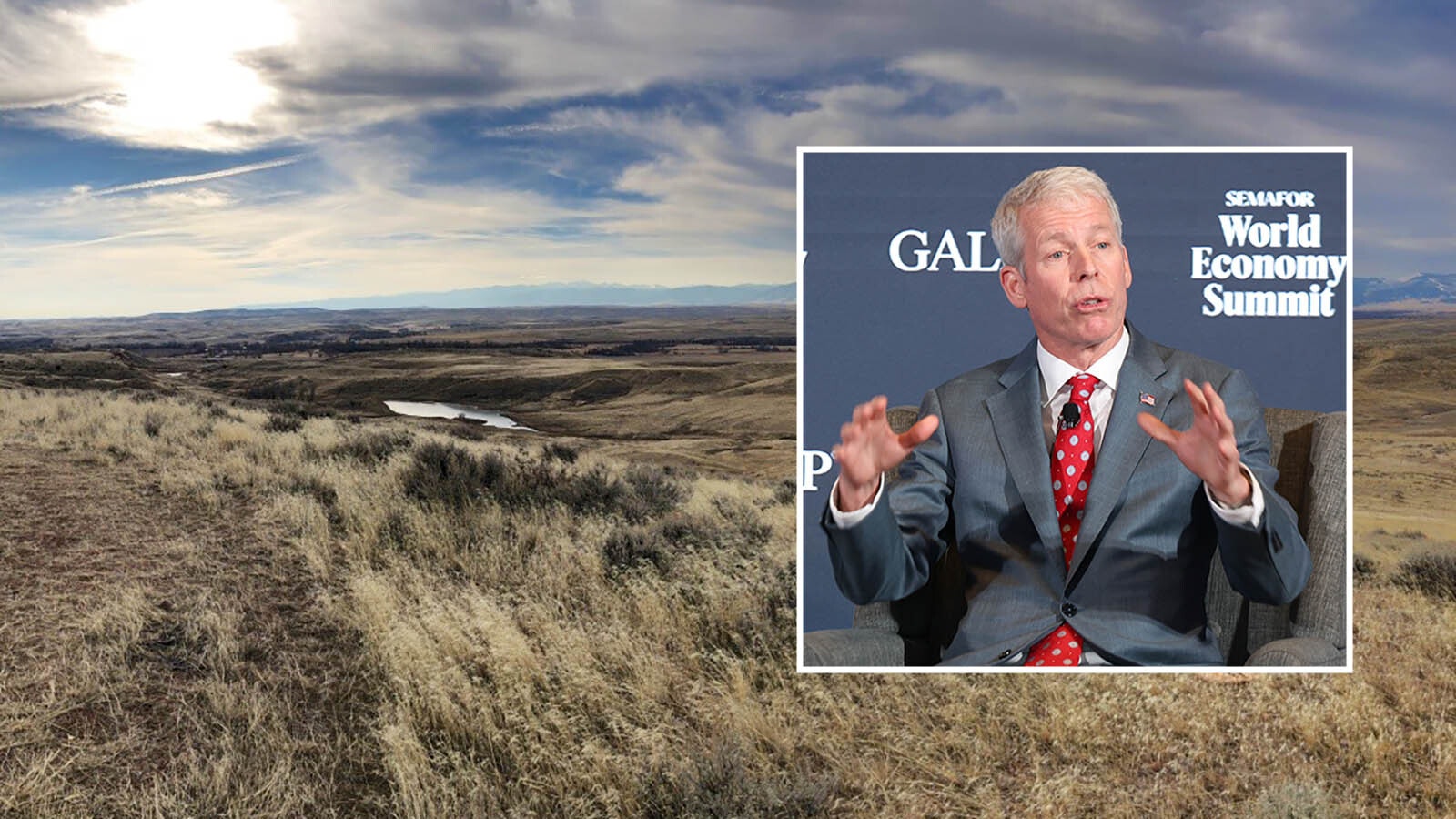People with residential rooftop solar installations and those who work in the industry gave the Senate Corporations Committee an earful on a bill that would free electric utilities from being obligated to buy their surplus electricity.
The compensation system would instead go before the Wyoming Public Service Commission, which would decide what rate they are paid for the surplus energy.
Bill Purpose
Sen. Cale Case, R-Lander, who sponsored Senate File 92, argued that the current net metering system pays residential producers a variable retail rate for the power they produce, which is higher than wholesale rates.
Since this option isn’t available to poorer customers who can’t afford rooftop solar, it ultimately produces subsidies for those who have rooftop solar and small wind turbines.
Those who can’t afford or are unable to have such systems end up paying for those who do, bill supporters argue.
To protect those who have already invested in rooftop solar systems, the bill contains a grandfather clause of 15 years in which they would continue operating under the current net metering system through 2039.
Fiery Debate
Whether or not net metering was producing a subsidy for small wind and rooftop solar was a point of contention throughout a committee hearing on the bill, which ultimately passed 3-2.
Opponents of SF 92 argued that it disincentives the installation of small wind and rooftop solar, kills jobs in that industry and undermines the freedom of customers who don’t want to be beholden to a public grid for electricity.
Proponents argued that residents with these residential renewable energy systems are wealthier and shouldn’t be supported by other ratepayers.
Case said he’s heard a lot of “vitriol” over the bill prior to the meeting and that, “I’ve lost friends over this bill.”
Stifling Industry
Clair Deuter, with the Powder River Basin Resource Council, argued that subsidizing isn’t happening.
“Removing net metering would stifle our state’s growing solar industry,” Deuter warned, as it would eliminate an incentive to install rooftop solar.
John Burrows, energy and climate policy director with the Wyoming Outdoor Council, told lawmakers that rooftop solar producers account for 1.8% of customers in the state.
The council, Burrows said, estimates that retail sales from net metering grew in the last two years from 0.3% to 0.5% of all retail sales.
“It’s taken the rooftop solar industry 20 years for that to occur, for it to get to the 0.5%,” he said.
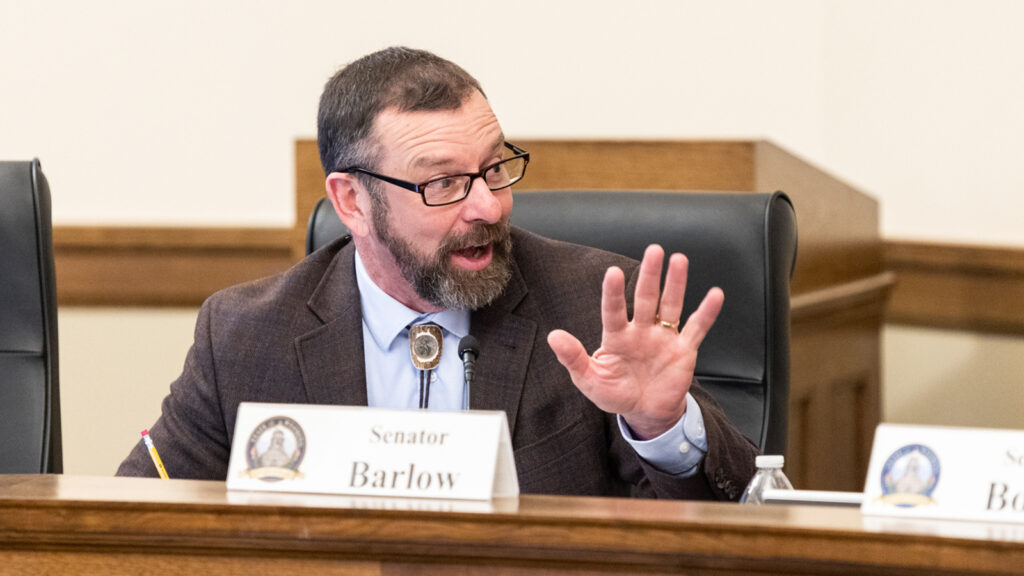
Neutral Agency
Cheyenne resident Denise Parrish argued that whether or not there’s a subsidy could be determined if the PSC were setting rates, as the bill would allow.
Parrish said she does not have rooftop solar on her home, but many friends and neighbors have installed systems on their houses. She said there’s a benefit to having the PSC determine the rates residential producers receive.
“An agency that has no dog in the fight, that is neutral, has the expertise to figure out whether there’s a subsidy or not,” Parrish said. “I believe it simply would allow a sorting out of this issue in a reasonable manner.”
Liberty And Independence
Jason Bloomberg, a Cheyenne physician, said that the discussion of the bill focused on rooftop solar, which ignores residents with small wind systems.
Bloomberg has solar systems that track the sun, as well as four residential-scale wind turbines. That’s in addition to 135 kilowatts of battery storage. Altogether, Bloomberg said his household invested $250,000 in their renewable energy system.
The did it “because my wife and I want to minimize our dependence on the carbon economy,” Bloomberg said.
He compared the ability to sell the energy he produces back to the grid to someone growing vegetables in a garden, canning them and selling the produce to others.
“It’s my liberty, and your proposal will take the investment that me and my wife made and hamstring us in our retirement years,” Bloomberg said.
He proposed to the committee that if Wyoming wants a more equitable system than the current net metering agreements it has now that it could follow a Colorado program that allows people who can’t install renewable systems to buy shares in large-scale renewable energy systems.
Those credits then apply to their utilities.
Industry Pespective
Kevin Beers, president of WyCO Wind and Solar, said his Cheyenne-based company services 200 residential wind systems in the area. Installations of these systems would be disincentivized under SF 92.
These wind systems produce much more power in the winter, which is when solar systems are producing the least. So ultimately, it would undermine another piece of the residential renewable picture that balances out loads in the grid.
A few other people in the industry spoke in opposition to the bill, arguing that it would hurt their businesses and eliminate Wyoming jobs.
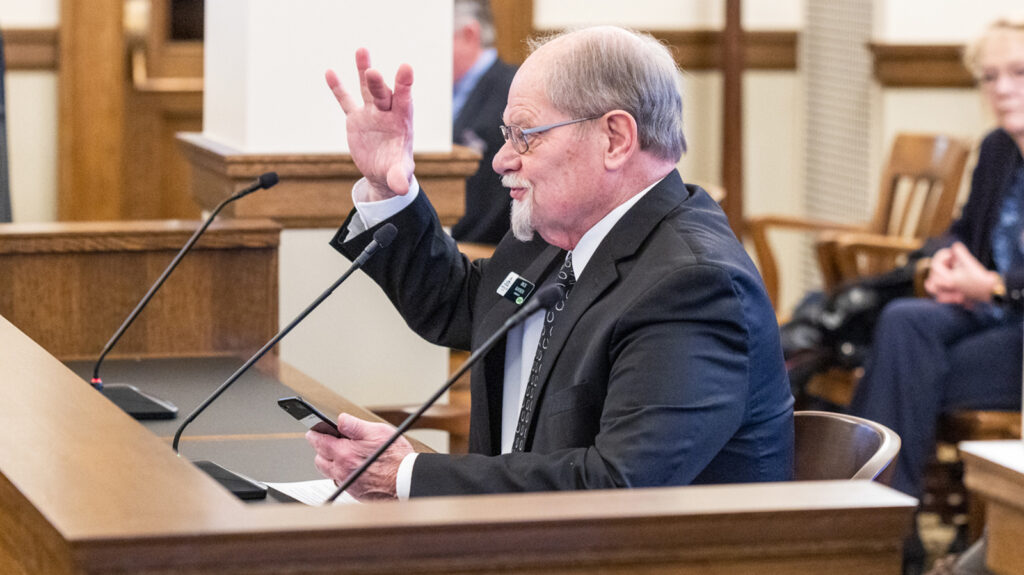
Utilities Perspective
Rick Kaysen with Rocky Mountain Power argued that, while the company supports rooftop solar as part of an “all-of-the-above approach” to energy, subsidies for those systems exist as a result of the net metering system now in place.
Kaysen said as more people install these systems, the problem will grow.
David Bush, state government affairs manager with Black Hills Energy, said there is a 30% federal investment credit for rooftop solar installation.
Combined with the grandfather clause in the bill that extends 15 years, Bush said growth of the industry would continue.
From 2004 to 2017, 126 net metering systems came online in the Cheyenne area, Bush said. In the last five years, that number grew to 791.
“We’re supportive of the bill. We think this needs to be addressed. The Public Service Commission is the proper entity to address that. They’re the experts on rate making.”
Close Vote
The bill passed out of committee with Sens. Eric Barlow, R-Gillette, and Brian Boner, R-Douglas, voting against it. Besides Case, Sens. Bill Landen, R-Casper, and Charles Scott, R-Casper, voted for the bill.
The full Senate passed it on first reading Thursday and second reading Friday. It will need to pass a third reading in the Senate and pass the House before it goes to the governor.

